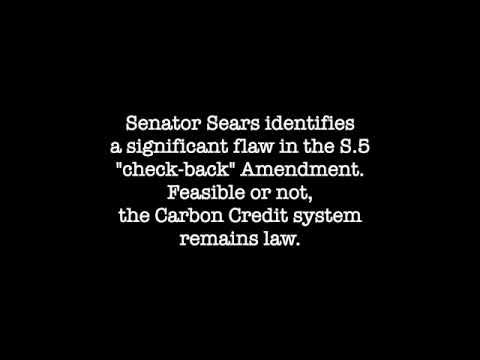Just Kill the UnAffordable Heat Act
Supporters are desperately trying to save the "carbon credit" proposal from massive voter backlash.
The Senate Appropriations Committee passed out the UnAffordable Heat Act (S.5) yesterday, Feb 28, 2023, by the slimmest of margins, 4-3. It will now go to the full senate for a vote most likely on Thursday.
The 4-3 squeaker came despite major changes to the bill that would require first a study to determine if a Clean Heat Standard is even feasible, fol…
Keep reading with a 7-day free trial
Subscribe to Behind the Lines: Rob Roper on Vermont Politics to keep reading this post and get 7 days of free access to the full post archives.



